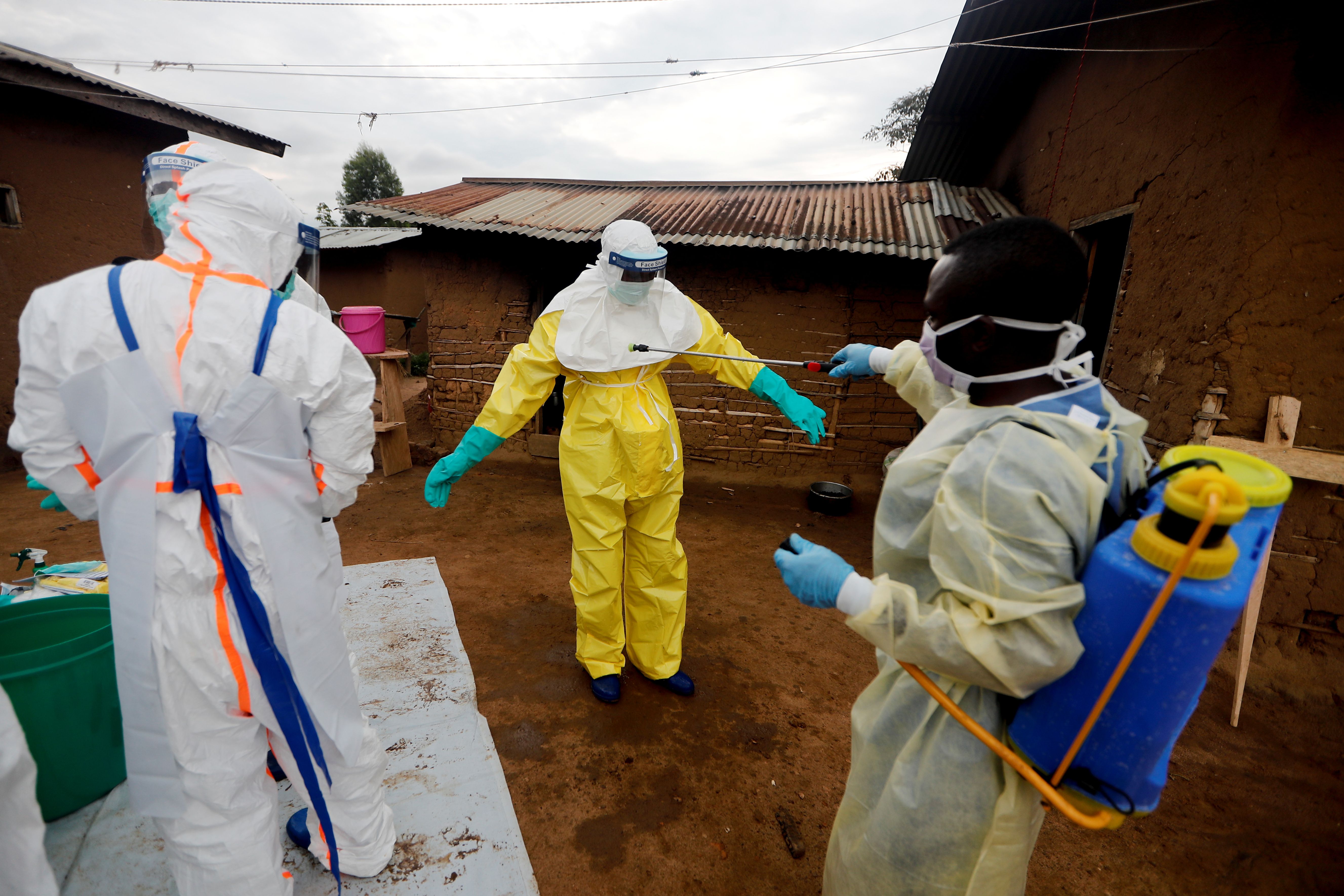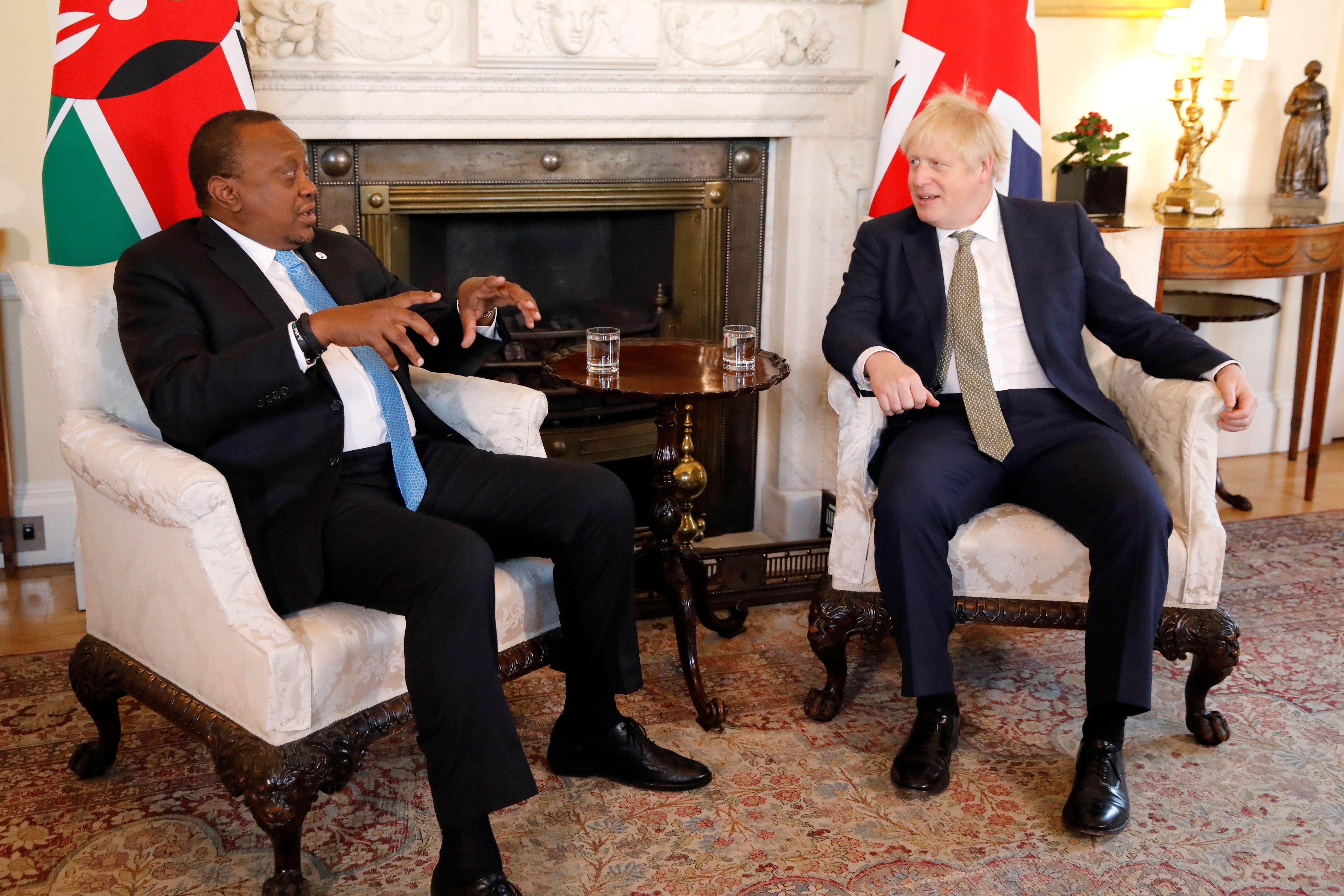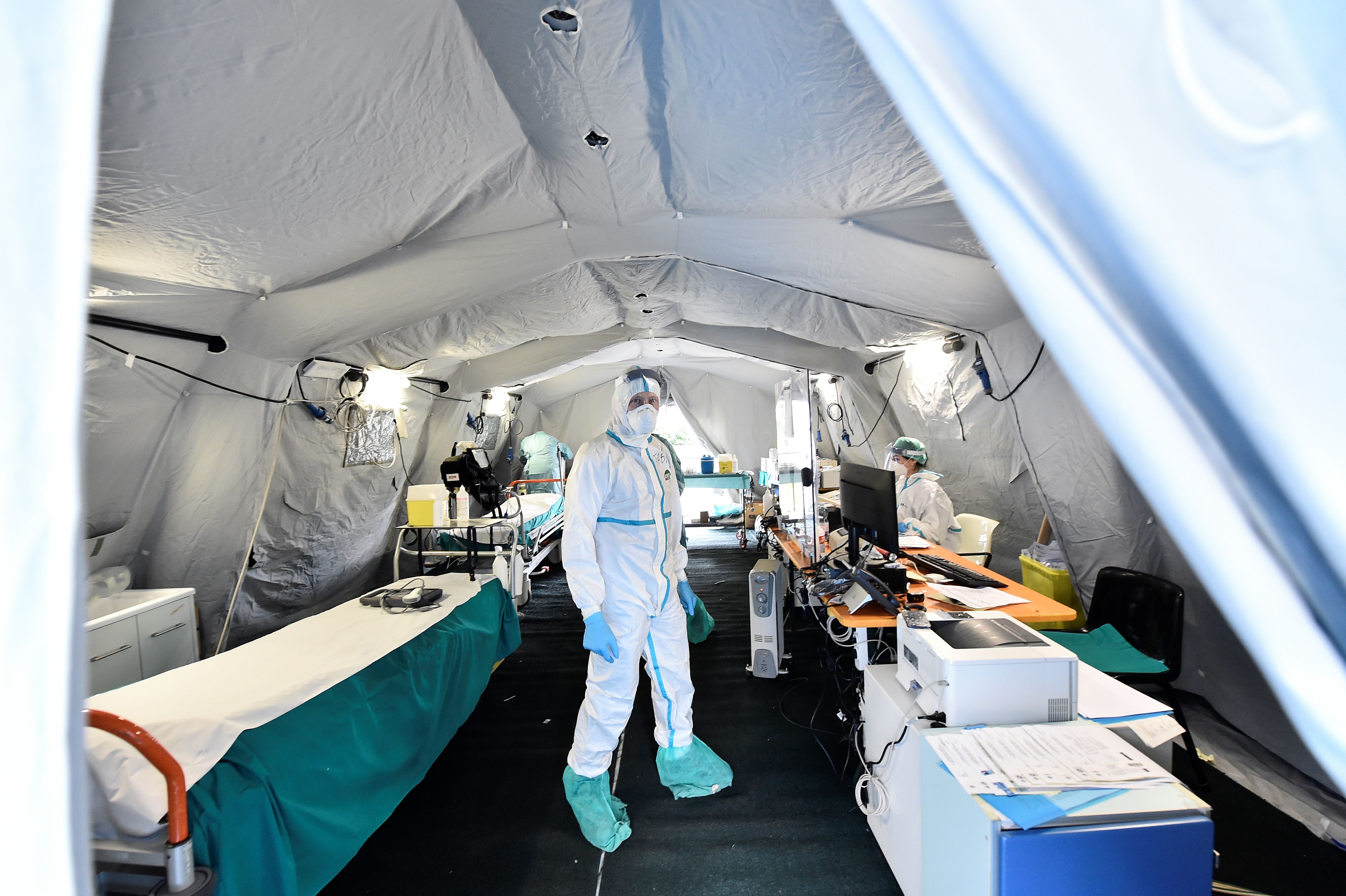
Ebola in Africa
As long as there are no new cases of Ebola in the Democratic Republic of Congo (DRC) by 12 April, the WHO will announce the end of the epidemic, which has killed 2,200 people since August 2018 and has a mortality rate of approximately 68%. This particular Ebola outbreak was the most difficult one to overcome from among the 29, mostly local, instances in Africa’s history. Ebola, first described in 1976, is transmitted by contact with bodily fluids such as blood or saliva. It is highly contagious. Some strains of the virus kill 90% of those infected, but the mortality rate is most often about 40–50%. So far, the worst impact of the disease was the Ebola epidemic in West Africa (Guinea, Liberia and Sierra Leone) between 2013 and 2016, in which over 11,000 people died. At that time, the UN Security Council issued Resolution 2177 (2014), announcing Ebola as a threat to global peace and security, which facilitated obtaining about $2 billion from international institutions to support the activities of medical services. Despite the WHO announcing the current epidemic in the DRC in August 2019 as a Public Health Emergency of International Concern (PHEIC), it did not receive similar attention and resources. In 2019 alone, only about 60% of the required $435.9 million was collected from donors to fund implementation of the Strategic Response Plan for the epidemic developed by the DRC Ministry of Health. Although none of the experimental Ebola vaccines have received full international approval, they have been used to reduce infection on a “compassionate use” basis since 2018. In the current epidemic, about 300,000 people have reported for vaccinations in the DRC and Rwanda. This has been allowed since the middle of last year, to slow down the rate of new transmissions.
Political Conditions
The epidemic mainly affected the provinces of North Kivu and Ituri, located in the most restless, north-eastern part of the DRC, on the border with Rwanda and Uganda. It is an area under only the illusory control of the Congolese state, and is immersed in local conflicts, which are mostly caused by ethnic tensions and competition for mineral resources. Materials extracted from makeshift mines in the region, often run by warlords, include cobalt used in the electronics industry.
The outbreak of the epidemic coincided with a nationwide political crisis. Although the mandate of President Joseph Kabila formally expired in 2016, presidential and parliamentary elections were not held until January 2019. In the epidemic areas (Beni and Butembo districts), which were also strongholds of Kabila's opponents, they were cancelled, which caused riots that disrupted the fight against Ebola. This situation deepened the sense of frustration and distrust of residents towards the central authorities.
A contingent of around 18,000 troops is stationed in eastern Congo, including in epidemic areas. UN soldiers (MONUSCO) are taking part in a mission to protect the population against abuse by the army and dozens of local armed groups. Operations of the militias prevented doctors from operating freely in the interior. In recent years, the jihadist Allied Democratic Forces (ADF), which declared loyalty to the terrorist Islamic State group (ISIS), have been particularly active. The group intensified attacks on civilians, for example in the vicinity of Beni, in the immediate proximity of the MONUSCO bases. The inability of the UN forces to protect the population resulted in a deep crisis of confidence among the locals, leading to spontaneous attacks on mission personnel and intensified calls for the troops to leave the DRC. The situation was changed only by the successful offensive of Congolese troops on the ADF forest bases that began in October 2019, which, however, also disrupted the work of medics.
Cultural Obstacles in the Fight against the Epidemic in the DRC
Despite the presence of small outbreaks of Ebola in the DRC in the past, it was an unknown phenomenon for most people in the country. That is why conspiracy theories about the virus spread easily. Particularly common were rumours that Ebola was a myth that served the interests of politicians, or that the epidemic was deliberately brought by foreign personnel in vaccines. The protective suits worn by staff of Doctors Without Borders (MSF) and the International Red Cross, which emphasised the distance between these foreigners and the locals, were held up as proof of this. In March 2019, the head of the MSF mission warned that doctors were “losing the fight” against the epidemic due to the lack of trust among residents. In February 2019, after attacks on clinics, the MSF staff of this organisation withdrew from the epidemic area for four months.
The key to controlling the epidemic was convincing the Congolese people to adopt habits that could help them avoid infection. The reluctance to vaccinate was broken only by the involvement of local community leaders enjoying authority (including artists and philanthropists), who encouraged others with their own example. It was particularly important to change funeral customs, for example moving away from keeping the deceased at home and from family burials in favour of handing the body over to medical services. It was also necessary to avoid hugs during greetings, to maintain social distancing in public places, to use hand washing points, and to undergo body temperature controls on the street, all of which were promoted, for example, by the use of posters.
The Importance of the Ebola Experience for the Fight against Coronavirus
SARS-CoV-2 is transmitted in a similar way to Ebola, mainly via droplets, and the fight against it requires similar counter-measures. Therefore, the experience of the largest Ebola epidemics in Africa in 2013 to 2016 and 2018 to 2020 is important for countering the coronavirus pandemic both in Africa and globally. For the WHO, led by Ethiopian national Tedros Adhanom, the fight against Ebola in the DRC was the most serious challenge immediately preceding the current crisis. In mid-2019, Ebola cases were recorded in Goma, a town with a population of two million, on the border with Rwanda. At the same time, there was a case recorded in Uganda. The WHO recommended that land borders in the region (especially between the DRC and Rwanda) remain open, so as not to cause panic which would increase informal pedestrian traffic between countries. Regarding coronavirus, similar recommendations can be expected for underdeveloped countries with porous borders.
Although African health systems are among the weakest in the world, they can draw on their own experience in combating Ebola. Safety precautions will be easier to introduce in countries that have already applied them to Ebola. Nigeria, where the first case of coronavirus in Sub-Saharan Africa was confirmed, on 27 February, is doing relatively well at suppressing it. This is partly because it re-established procedures for identifying and isolating infected contacts, developed in July 2014, when a Liberian diplomat brought Ebola to Lagos. It then succeeded in preventing an outbreak in this metropolis of around 20 million. Currently, most African countries use passenger body temperature testing equipment at airports, the same that were used to identify Ebola cases. In this way, the very first coronavirus case in DRC was identified.
The recent Ebola epidemic in Africa has shown that controlling highly contagious diseases requires residents of affected countries to show discipline in daily habits until the threat ceases. The Ebola experience also points to the key importance of the information environment for the success of anti-epidemic activities. It is no accident that Kenya, also at risk of Ebola, saw the arrest of a Twitter user accused of creating panic and spreading misinformation about the first COVID-19 case in the country, confirmed on March 14. African and Western states will be more than usually willing to counteract the spread of false information, in social media and traditional printed press, to avoid undermining trust in reliable medical knowledge and state services during a pandemic. There is a risk that, in some countries, this will justify abuse against journalists.
In the event of a second wave of SARS-CoV-2, possible in autumn 2020, the WHO may recommend (as in the case of Ebola) that particularly affected outbreak centres implement the ad hoc use of non-approved vaccines, regardless of the progress of work on the universal vaccination programme.







